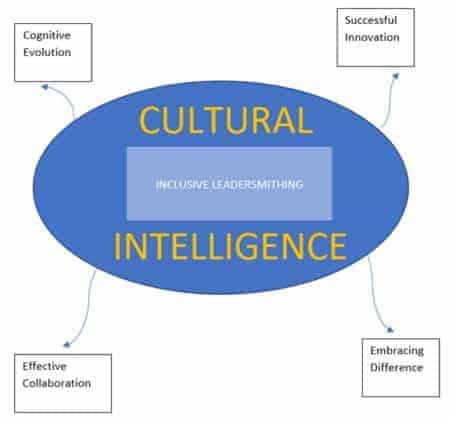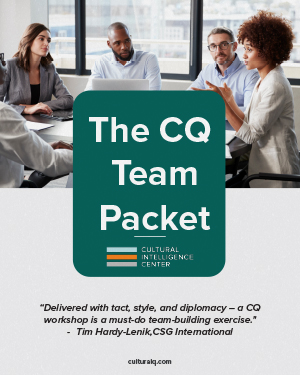I was lucky enough to have a career spanning a quarter of a decade at a large international broadcaster, where I rose through the ranks and was in leadership roles in the latter 10 years.
I was wondering whether I would be remembered as a good inclusive leader when I came across my leaving cards as I moved from one part of the organisation to another. As my heart warmed reading the words of sorrow and celebration, the variety of people was huge; the additional cards and notes from those whose careers I propelled and supported were from underrepresented people in broadcasting, and, gratifyingly, the impact was immense, especially as I note where some of those people are now.
Those people grew, the organisation benefitted, and the output improved. And I continue to learn, as I reflect on those, and more recent, experiences.
Success as a leader is measured in a variety of ways; ultimately, it often boils down to how well has output grown under your direction.
Growth. It’s a result by which capitalist economies are consumed, but now, increasingly it is under scrutiny as we ask, growth at what cost?
Growth is a requirement for organisations and economies to survive and thrive, however, how that is led should be both sustainable and inclusive.
Leading growth, sustainability, and inclusivity are possible. Getting the balance right as a leader is key, and (CQ®) – does help. Cultural Intelligence – CQ – is the capability to work and relate effectively with those who are of a different background to you. There is nothing mutually exclusive about these concepts. The answers to a successful formula require innovation and collaboration, thinking in ways we haven’t done before, and being open to embracing difference. Embedding inclusive leadersmithing behaviours with High CQ is proven to assist with these outcomes.
Eve Poole, in her book Leadersmithing, describes how the term ‘leadership’ is problematic.
“It feels more like a title or status than an ongoing activity…’leadersmithing’ is about apprenticeship, craft and hours of practice”.1
Dr. David Livermore tweeted that “90% of leadership books assume a low power distance, individualist context, yet, 70% of the world is high power distance and collectivist”,2 so whilst we may consider Poole’s insight to be very white, traditional, and Eurocentric, her premise of templating and building strength around your craft is a good one.
Inclusive corporate and organisational behaviours start with leadersmith role-modeling.
But what are you role-modeling? Why are you doing it that way? How do you shape a different way forward when you have achieved results using your own way for years? How often do you listen to voices different from those that agree with you? How long do people stick around under your guidance? What do you allow people to get away with?
“The culture of any organisation is shaped by the worst behaviour the leader is willing to tolerate” Gruenert & Whitaker3
If you believe this, as I do, then I say you must also believe that the culture of any organisation can be shaped by the best behaviour the leader is willing to demonstrate. Understanding particular areas of underrepresentation, why they exist, your role as a leader in supporting or dismantling that discrimination, and how you demonstrate the best behaviours, requires cultural intelligence.
I’m not the only one to say so. Back in 2017, Deloitte marked out cultural intelligence as one of the six signature traits of inclusive leadership4, but I would go further to say if you are high in CQ, you’d be successful at the other five.
The 5 C’s (Commitment, Cognisance, Curiosity, Courage, and Collaboration) are all possible and with greater ease, if you can learn, practice and develop the capabilities of the sixth ‘C’, CQ. These in turn help you be an inclusive leader, which helps you effectively support and encourage a diversity of staff and teams, and the result is higher productivity, innovation, and growth.
This is especially true when you lead coupling with the ideology, look after your people and the rest will follow.
If you want to be a better, more inclusive leader, you have to want to develop your ease with difference; CQ Drive and its subcategories around motivations and efficacy pinpoint this. CQ Knowledge allows you to identify different values and belief systems, as well as organisational experience and lexicon, which help with understanding of difference. CQ Strategy allows you to thoughtfully process that knowledge and understanding, by planning on how you use it, checking assumptions, and working on your self-awareness before you use your CQ Action, and are adaptable in how to interact with those who have different backgrounds.
In order to be an effective inclusive leader using CQ does help you there without being confrontational, but, the level of introspection can be uncomfortable. If you’re any good at leadersmithing though, you’ll know that that discomfort is just a great opportunity to stretch, learn and develop, so you can be excellent.
1 Leadersmithing: Revealing the trade secrets of leadership, Eve Poole, Bloomsbury 2017
2 https://twitter.com/DavidLivermore/status/1192592900544053248
3 School Culture Rewired: How to define, assess and transform it, Steve Gruenert & Todd Whittaker, ASCD, 2015

